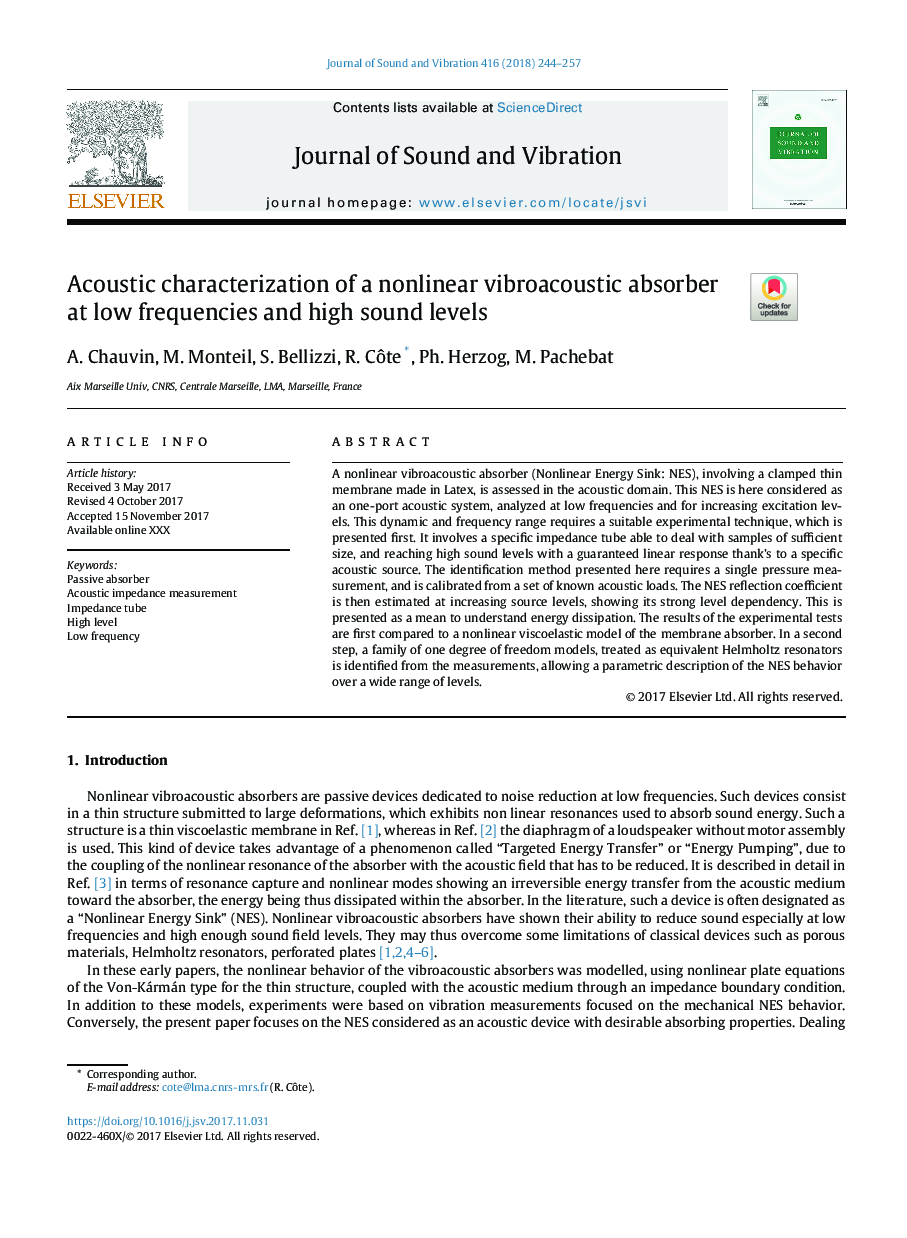| Article ID | Journal | Published Year | Pages | File Type |
|---|---|---|---|---|
| 6753964 | Journal of Sound and Vibration | 2018 | 14 Pages |
Abstract
A nonlinear vibroacoustic absorber (Nonlinear Energy Sink: NES), involving a clamped thin membrane made in Latex, is assessed in the acoustic domain. This NES is here considered as an one-port acoustic system, analyzed at low frequencies and for increasing excitation levels. This dynamic and frequency range requires a suitable experimental technique, which is presented first. It involves a specific impedance tube able to deal with samples of sufficient size, and reaching high sound levels with a guaranteed linear response thank's to a specific acoustic source. The identification method presented here requires a single pressure measurement, and is calibrated from a set of known acoustic loads. The NES reflection coefficient is then estimated at increasing source levels, showing its strong level dependency. This is presented as a mean to understand energy dissipation. The results of the experimental tests are first compared to a nonlinear viscoelastic model of the membrane absorber. In a second step, a family of one degree of freedom models, treated as equivalent Helmholtz resonators is identified from the measurements, allowing a parametric description of the NES behavior over a wide range of levels.
Related Topics
Physical Sciences and Engineering
Engineering
Civil and Structural Engineering
Authors
A. Chauvin, M. Monteil, S. Bellizzi, R. Côte, Ph. Herzog, M. Pachebat,
